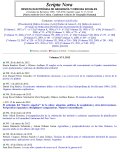Lost in colonialism: Spanish public health in Cuba before and after the Ten Years’ War
Keywords:
Spanish Empire, 19th century, Cuba, public health, epidemicsAbstract
The specific features of Spanish domination over Cuba during the 19th century are usually “lost” when translated into a conventional historiographic language of colonialism. For the particular case of public health and epidemics, this paper proposes by contrast an analysis of that domination as a somewhat balanced relation between a “peninsular Spain” and an “overseas Spain” which differed from French colonialism in Algeria or British colonialism in India. The juxtaposition between the Spanish and Cuban health administrations, the leading role of Cuban public health and epidemiology within the Spanish Empire and the significant participation of Creole physicians were main aspects of a singular relation which prevailed until the Ten Years’ War (1868-1878). After this conflict, Cuban public health and epidemiology moved even further away from colonialism because of tensions between an incipient Cuban medical nationalism and Spain’s desperate attempt at integrating the island within its public health system.Downloads
Issue
Section
Articles
License
Los autores que publican en esta revista están de acuerdo con los siguientes términos:
- Los autores conservan los derechos de autoría y otorgan a la revista el derecho de primera publicación, cin la obra disponible simultáneamente bajo una Licéncia de Atribución Compartir igual de Creative Commons que permite compartir la obra con terceros, siempre que estos reconozcan la autoría y la publicación inicial en esta revista.
- Los autores son libres de realizar acuerdos contractuales adicionales independientes para la distribución no exclusiva de la versió de la obra publicada en la revista (com por ejemplo la publicación en un repositorio institucional o en un libro), siempre que se reconozca la publicación inicial en esta revista.





